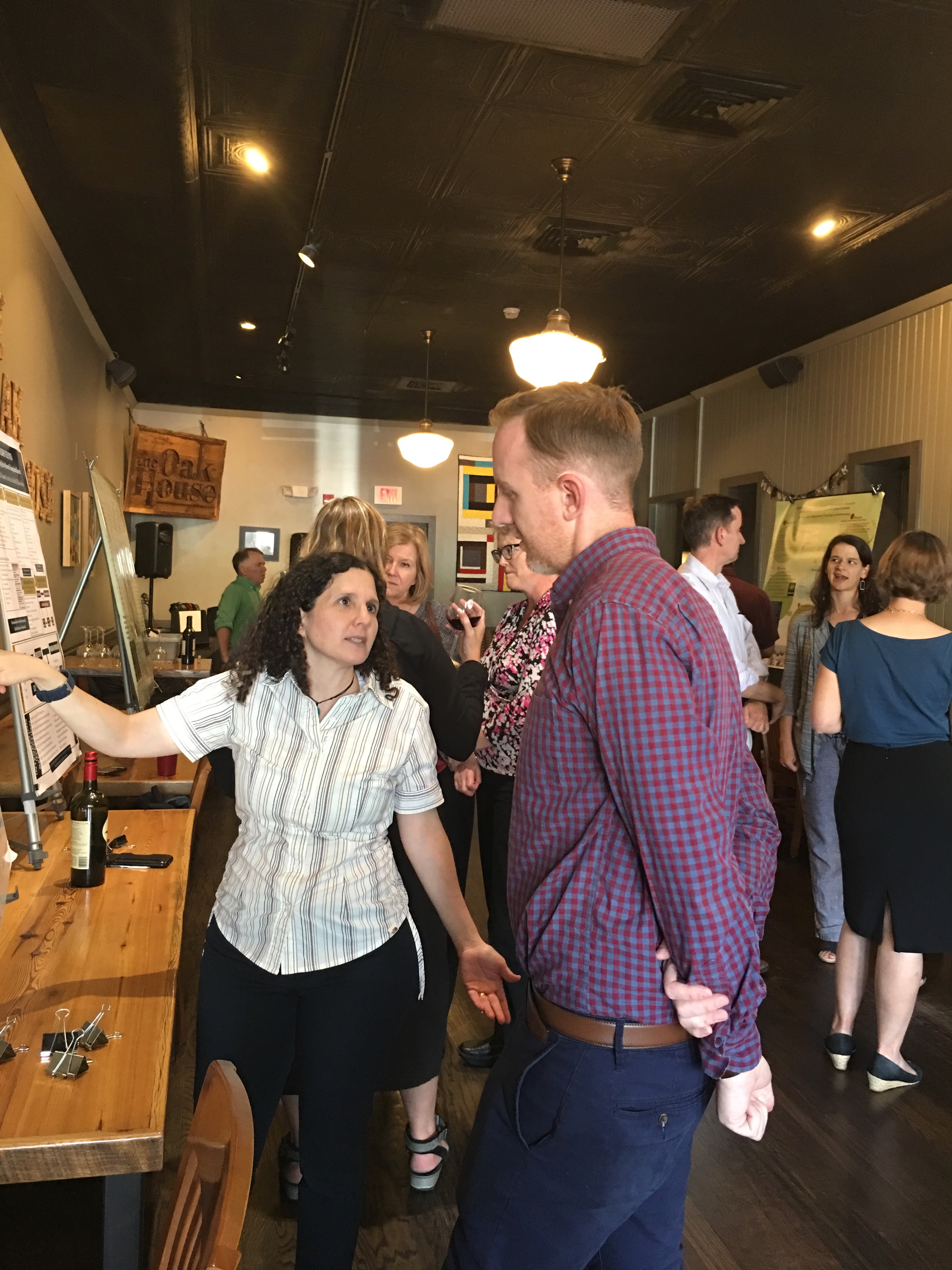Communities of Practice
2024-25 Communities of Practice

Communities of Practice event held at the Oak House
According to Etienne and Beverly Wenger-Trayner, communities of practice are “groups of people who share a concern or a passion for something they do and learn how to do it better as they interact regularly.”
There are three basic criteria for membership in a community of practice, including a shared domain of interest, a community or group of people who communicate with each other and engage in joint, sustained activities, and the practice, or development of a shared repertoire of knowledge and expertise through experiences, stories and tools. Finding value in the interactions and developing one’s sense of identity are common themes for community members (Wenger, McDermott & Snyder, 2002).
Some of the possible activities of a community of practice for research on global engagement include, but are not limited to: critical reflection on extant scholarship; mapping existing knowledge and identifying gaps; linking evidence to practice; showcasing “best practices”; identifying possible collaborative opportunities; discussing strategies for scholarly productivity across life ages and stages; mentoring students.
In 2024-25, there will be several opportunities to participate in themed communities of practice.
Collaborative Online International Learning (COIL) and Virtual Exchange
The purpose of this CoP will be to examine best practices for COIL teaching and explore current research on COIL, as well as opportunities for further scholarship in this area. In addition, participants will work to design a short-term COIL project to implement in the winter or spring.
Tentatively, we will meet in person at the Oak House and virtually via Zoom on Thursdays from 4:15-5:30PM on the following dates: Sept. 12th, Sep. 26th (virtual), Oct. 10th, Oct. 24th (virtual), Nov. 7th, Nov. 21st (virtual).
In the spring, CoP members will have the option to continue meeting as a group to support one another in implementing our COIL projects and to share what we have learned with colleagues.To deepen our learning, we will read and discuss selections from the book The Guide to COIL Virtual Exchange: Implementing, Growing, and Sustaining Collaborative Learning, scholarly articles on COIL, and other relevant materials such as podcasts. Participants will receive a $75 Amazon gift card to further support their learning journey in COIL.
All faculty and staff are welcome to apply. For more information contact Sandy Marshall at dmarshall8@elon.edu.
To express your interest in joining this CoP, please fill out this short form.
Community-Engaged Global Learning: Continuing the conversation
In this multi-semester CoP co-facilitated with the Kernodle Center for Civic Life, we are facilitating discussions of relevant scholarship and working together to redesign an existing course or create a new course incorporating elements of community-based global learning. We are also exploring collaborative research projects. All are welcome, regardless of past experience.
Please complete this short form to indicate your interest.

Ketevan Kupatadze and Olivia Choplin present their project sponsored by the CRGE